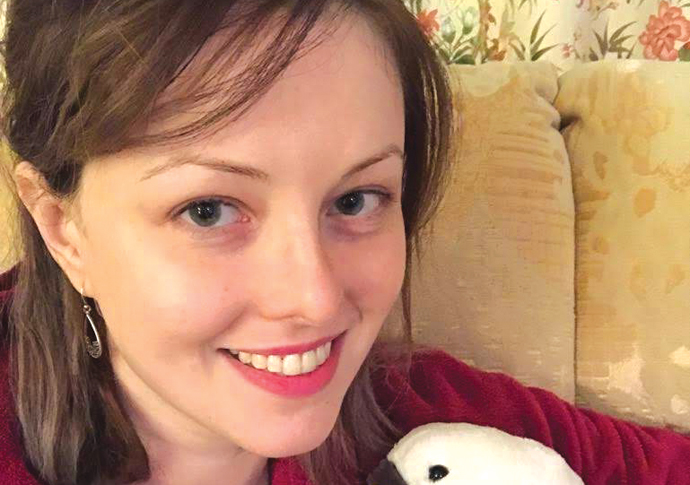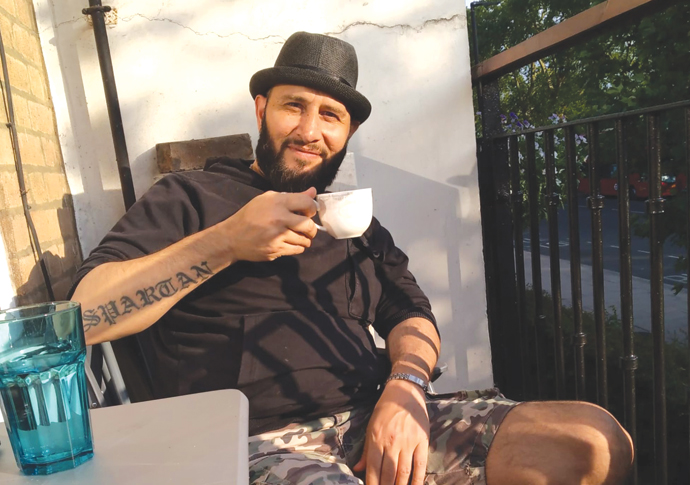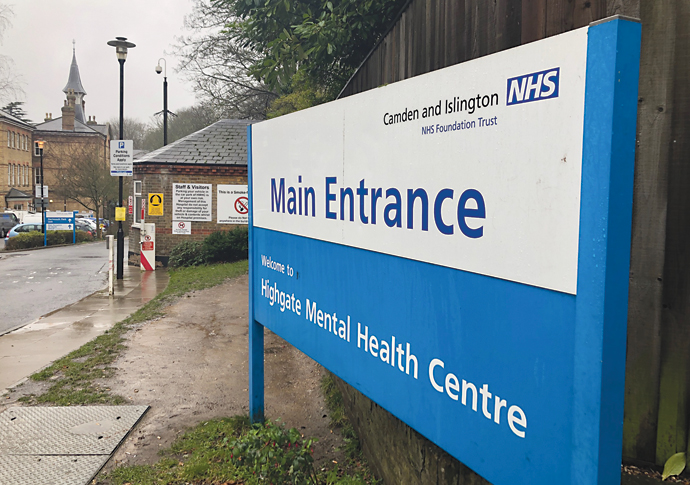Tragic death on Topaz ward leaves family ‘shocked and horrified’ at hospital failings
Inquest hears details of ‘understaffed’ mental health centre
Friday, 13th June — By Daisy Clague

Louise Crane took her own life at the centre last September
AN inquest into the death of a 39-year-old woman at a psychiatric unit has found that “inadequate” staffing, care and treatment were factors that contributed to her death.
Louise Crane, who lived in Bemerton Street in Islington, was admitted to the Highgate Mental Health Centre in June 2024 and died by taking her own life in her room on the unit’s “Topaz” ward on September 19.
In a statement shared with the Tribune, Ms Crane’s family said they were “shocked and horrified” by the extent of the failings in her care.
After a seven-day inquest at Bow Coroner’s Court which concluded on Tuesday, a jury found that unsatisfactory information sharing and recording, inadequate risk management, staffing and levels of care and treatment during Ms Crane’s time on the ward contributed to her death, alongside a high risk of suicide linked to her diagnosis of Emotionally Unstable Personality Disorder.
The Crane family said: “We came into this inquest expecting to hear about some problems surrounding Louise’s treatment, but never did we expect the failings to be as bad as they were.
“Louise should have been kept safe and looked after in hospital but was not, and we believe that she has lost her life because of these failings.
“What is especially upsetting for us is that Louise had been showing positive signs of recovery prior to her admission to Topaz ward, giving the family hope for the first time in a very long while.
“That hope has been taken from us, with Louise failed in her care when it was most critical.”
Ms Crane’s family described her as a “much-loved daughter, sister and auntie” and “an incredibly intelligent and talented person”.

Nick J’Dourou
They added: “We miss her presence every single day. She was hugely loyal to her friends and family, caring deeply about everyone. This included her beloved cat Loki, her comfort, whom she doted on. We will continue to feel the loss of Louise for the rest of our lives.”
The jury heard that Ms Crane had many interests including football, Lego, family history and swans, which she regularly knitted for her young nieces.
Her family’s solicitor Kim Vernal of Taylor Rose said: “The sheer number of poor practices revealed during Louise’s inquest is disturbing.
“This included deficiencies in information sharing, risk assessments, care and treatment, all stemming from poor leadership.
“The very systems that should have been in place to protect Louise failed her when she was at her most vulnerable.”
Ms Crane was a patient on high-intensity wards when she was first admitted to Highgate, but records of her mental state and risk to herself were not adequately handed over to staff on the lower-security “Topaz” ward when she was moved there on 5 September, the inquest heard.
The jury was told that Ms Crane found the step down to Topaz ward “sudden and upsetting” because it took place at short notice and at night, despite recommendations that a well-organised step down would be important for her mental state.
Senior members of staff from the North London NHS Trust told jurors that the pressure on beds and the system for allocating them meant that even for higher risk patients like Ms Crane, they could not deliver a structured step down even where they needed one.

Highgate Mental Health Centre
In the week before her death, the court also heard that Ms Crane was increasingly withdrawn and spent more time in her room.
Her family’s lawyers noted a lack of engagement by staff with Ms Crane during that period, although NHS staff said her continued attendance at ward activities like cupcake making and a “Coffee and Current Affairs” group constituted “meaningful therapeutic engagement”.
The day before her death, Ms Crane told staff that she wanted to end her life, and had a specific plan to do so, but neither her risk level nor the frequency at which she was checked were amended.
A search of her room was carried out and some items confiscated, but Ms Crane ended her life the following day, using an item that she had regularly had in her possession but was not found or confiscated during the room search.
The jury also found that Ms Crane’s patient records on the Topaz ward were inadequate, which meant information about her risk to herself was lost.
Louise’s family also criticised the way that the NHS Trust engaged during the inquest itself as “obstructive, evasive and shambolic, seeking to minimise evident failures at every turn”.
They said it has “only added to the family’s pain”, adding: “We take from this that, publicly at least, the Trust continues to avoid accountability for its substandard care.
“The Trust has shown itself to be indifferent to the consequences of its own acknowledged failings.”
Ms Crane’s inquest follows an internal investigation at the same health centre into the death of another patient, Nick J’Dourou, 46.

Bow Coroner’s Court where the inquest into Ms Crane’s death was heard
The report warned of a “series of missed opportunities” in making sure Mr J’Dourou was kept safe, after finding that he was not checked on every hour as was required under clear regulations.
At some points he was mistaken to be sleeping during monitoring rounds, including by one nurse who cleaned the room and left fresh bed linen as he lay dead on his bed.
Mr J’Dourou died from asphyxiation one week after being admitted to the low-security Opal ward.
He had repeatedly asked to be moved to Coral ward, which has a far higher level of security.
The NHS internal investigation said Mr J’Dourou’s “suicidal risk was not fully explored” and his care plan “lacked vital information”.
But, potentially more seriously, staff had been “dishonest and negligent” when they filled out monitoring forms “retrospectively” with inaccurate information.
A North London NHS Foundation Trust spokesperson said: “We were deeply saddened by the death of Louise Crane, and send our sincere condolences to her family and friends on their loss.
“The inquest heard from many of our staff who were personally involved in caring for Louise both in her longer term care and in the period shortly before her untimely death in September 2024.
“The clinical colleagues involved in Louise’s care, the wider ward team, and senior colleagues, have been candid and reflective in their scrutiny of the care she experienced, and shared this honestly at the inquest, with the sole aim of learning every possible lesson from Louise’s death, in order to improve care and prevent any similar tragedies.”
They added: “We acknowledge this will have been very difficult for Louise’s family to hear, and we are sorry for their loss and their ongoing grief.
“We remain open to working with them to ensure we take on board every possible lesson from their tragic experience.”